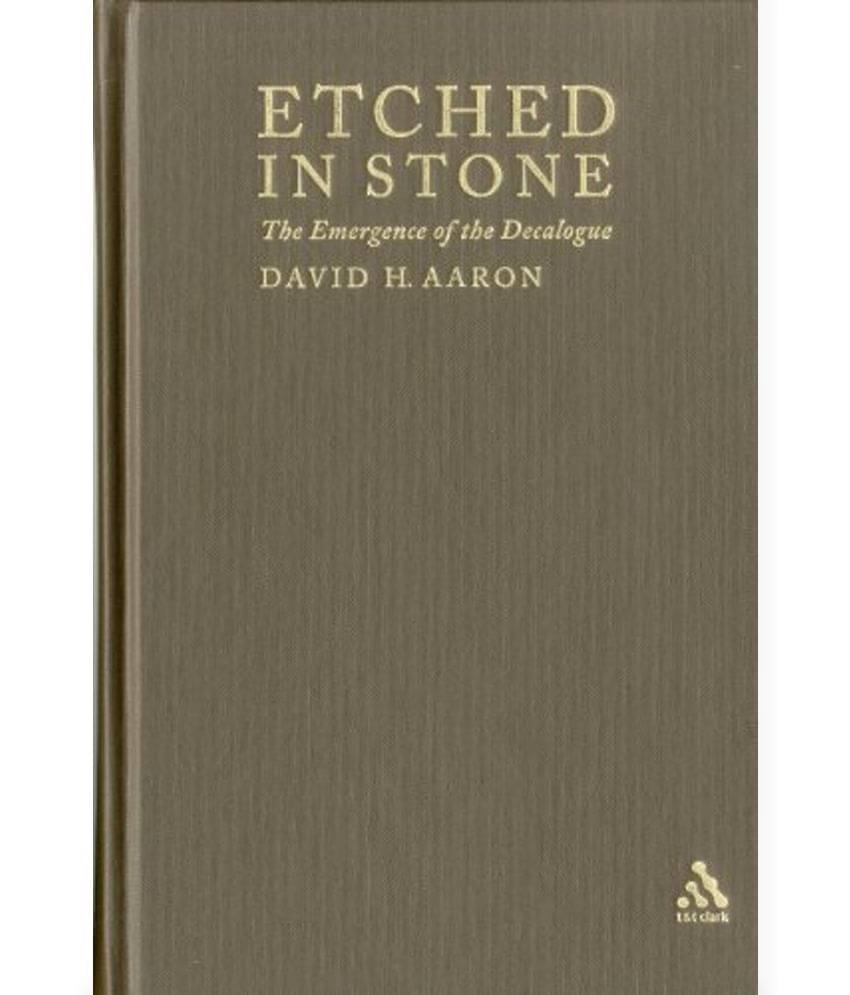Something went wrong. Please refresh the page and try again.
Something went wrong. Please refresh the page and try again.
Notifications can be turned off anytime from settings.
Item(s) Added To cart
Qty.0
Something went wrong. Please refresh the page and try again.
Something went wrong. Please refresh the page and try again.
Exchange offer not applicable. New product price is lower than exchange product price
Please check the updated No Cost EMI details on the payment page
Exchange offer is not applicable with this product
Exchange Offer cannot be clubbed with Bajaj Finserv for this product
Product price & seller has been updated as per Bajaj Finserv EMI option
Please apply exchange offer again
Your item has been added to Shortlist.
View AllYour Item has been added to Shopping List
View AllSorry! Etched in Stone is sold out.


You will be notified when this product will be in stock
Brief Description
An approach to the questions of when and why the Decalogue texts were written as well as a comprehensive approach to methodological issues that contribute to our understanding of the composition of the Decalogue. >
Learn More about the Book
The document known as The Ten Commandments, more formally referred to as The Decalogue, remains among the most controversial and complicated passages in the Hebrew Bible. Even today, the twentieth chapter of Exodus continues to serve as a major religious and ethical icon within popular culture and religious communities, despite its many unexplained elements. Lawsuits over the display of Decalogue Tablets have occupied courtrooms in more than half the states of this country. And yet, few people understand that there is not one, but three versions of what are usually called "The Ten Commandments." Moreover, when their ideological underpinnings are examined closely, these versions prove to be quite antithetical to one another. Even fewer are aware of the probability that these documents were written very late in the history of biblical literature-indeed, so late as to constitute a literary afterthought in the development of Israelite ethnic self-definition. In Etched in Stone: The Emergence of the Decalogue Tradition, Aaron examines the question of when the Decalogue versions were written and why. The main focus of this book is the literary phenomenon known as "the tablets" and how it functioned within the broader narrative. Aaron argues not only that the inclusion of the Decalogue texts was quite late in the development of the Pentateuch's canon, but that their integration preserves vestiges of highly charged ideological conflicts that were inadvertently neutralized by the rather bland and generic ethical precepts coined among its verses. Etched in Stone provides a paradigm for merging a variety of critical methods (source criticism, tradition criticism, ideological criticism, redaction criticism) and literary approaches that have heretofore been under-explored. In this sense, Etched in Stone will be read by scholars for its far-reaching conclusions and used by students (undergraduates, seminary, graduate) for learning approaches to the sequencing of biblical materials.
Review Quotes
1. "By his own admission, his method of investigation is hybrid, including literary criticism, cultural criticism, historical criticism, and prominent among them all, ideological criticism. In his approach he engages "counterhistories," versions that were not accorded orthodox status, believing that they reveal much about the process of tradition development. Though meticulous in its approach, the book is quite readable. The serious Bible student will find it very challenging." - Dianne Bergant, The Bible Today, May /June 2007--Sanford Lakoff
The images represent actual product though color of the image and product may slightly differ.
Snapdeal does not select, edit, modify, alter, add or supplement the information, description and other specifications provided by the Seller.
Register now to get updates on promotions and
coupons. Or Download App